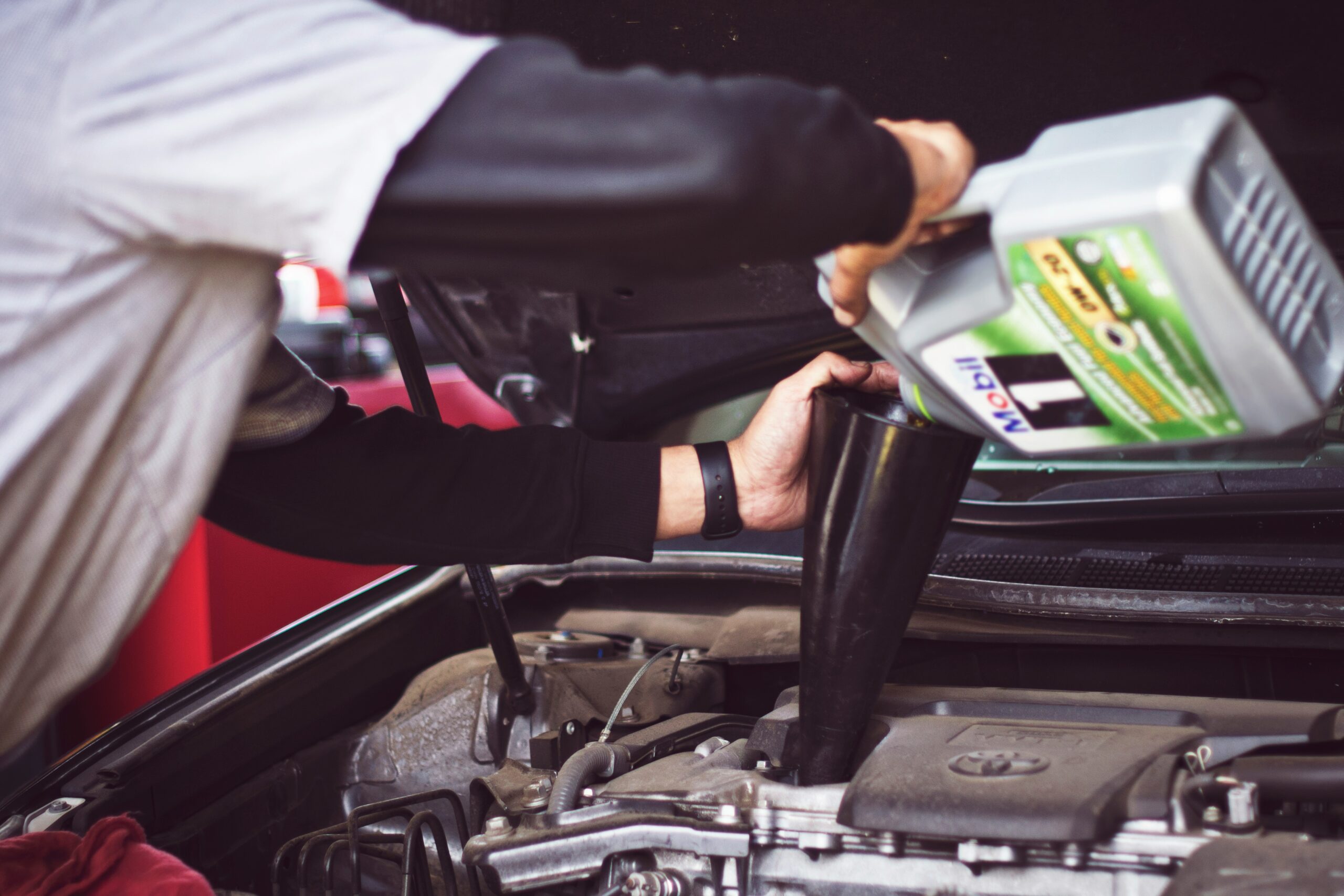If your engine is damaged from no oil, you’ll notice a lit-up oil pressure warning light, a burning oil smell, grinding noises, a smoking or overheating engine, and/or overall weaker engine performance.
QUICK LOOK
- Grinding sounds, clunking or knocking sounds, and burning smells are all symptoms of engine damage caused by low or no engine oil.
- Oil pump failure, leaks, and using the wrong oil can all lead to low oil levels and engine damage.
- Regular maintenance, including routine oil changes, is essential to keeping your engine and all its moving parts running efficiently and avoiding severe damage from low oil levels
How to tell if your engine is damaged from low or no oil
Your engine may not show obvious signs of damage from low or no engine oil, but nine times out of ten, you’ll likely notice a combination of the following signs:
- Lit-up oil pressure dash light: This is often the first sign and the clearest way to tell that your engine is suffering or will soon get damaged from low oil levels. This light comes on when your car’s computer system senses your engine doesn’t have enough oil—bring your car to an auto shop immediately if you see this dash light come on.
- Burning oil smell: The smell of burning oil could indicate a leak, or it could be a sign that you’ve been driving too long without topping up on your oil. If you notice this, pull over as soon as possible to prevent further engine damage and call a tow truck.
- Grinding, clunking, or knocking sounds: If you notice strange engine noises coming from underneath your hood, your engine parts could be seriously damaged by a lack of lubrication from low oil. Bring your car to a trusted repair shop as soon as you hear strange noises from your engine to prevent further damage.
- Inefficient engine performance: Po/LISor engine performance and decreased fuel economy can both be signs of low oil. Check your levels or bring your vehicle in for an oil change.
- Overheating engine: If a check engine light appears on your dash or your hood starts to smoke, this could be a sign that your engine is overheating from low oil levels, causing serious damage to its parts. Call a tow truck immediately and bring your car to an auto shop.
What causes low engine oil pressure?
Your car may have low oil pressure because you’ve skipped one too many regular oil changes. If you suddenly have low oil pressure despite keeping up with routine maintenance, the following causes could be to blame:
- Oil pump failure: Oil pumps make sure your engine oil flows through your system efficiently, so when the pump fails, your oil pressure lowers and oil can’t move through all the parts of your engine like it used to. This can severely damage your engine.
- Wrong oil: Oil viscosity varies depending on the make and model it’s intended for. If you fill your car with the wrong oil type, your oil pressure will be negatively impacted and your engine could be damaged in the process.
- Oil leak: If part of your engine is cracked or broken, oil may leak and lower your car’s pressure. Look for pools of oil on the pavement when your car is parked to see if your engine is leaking oil.
What to do if your engine has low or no oil
If your car’s oil pressure is low or you’re completely out of oil, bring it to an auto shop immediately to get an oil change. The mechanics will flush your car of any old motor oil and add the correct type of oil to your engine to ensure your car runs efficiently.
If your engine has persistent problems even after getting an oil change, assess whether your engine was damaged from a lack of oil, if there’s a leak, or if you need a new oil pump or filter.
In extreme cases, your engine may not be salvageable from low oil pressure damage. That’s why it’s crucial to keep up with routine oil changes and to bring your car in for maintenance as soon as you suspect there’s a problem!
How long can my engine run without oil?
If you let your engine run without any oil, your engine’s pistons and rods could become damaged in just 5 to 10 minutes. Your engine will likely seize and stop running completely before 30 minutes is up, and in some cases, the engine block or crankshaft could crack.
Engine oil also helps keep your engine’s metal components cool, so running your engine with low or no oil increases your chances of an engine fire. This is why it’s so important to keep an eye on your engine oil levels and ensure that your engine has clean, topped-off oil levels.
If your car uses conventional oil, aim for an oil change every 3,500 to 5,000 miles. If your car uses synthetic oil, get an oil change every 7,500 to 10,000 miles.
FAQs
-
How do I know if my engine is damaged?
-
Will driving with low engine oil damage my engine?

Katherine Duffy is an insurance writer who has spent over half a decade in the professional writing industry. Katherine specializes in content geared toward the everyday driver, including advice on insurance companies and coverages, vehicle specs, and car maintenance. As part of her mission to create helpful and relatable articles, she has written over 550 pieces on car insurance and vehicle care. Katherine has also worked as a teaching assistant at Wilfrid Laurier University, where she obtained a degree in English Language and Literature. Katherine is currently pursuing her J.D. at Western Law.
Melanie Reiff is an expert insurance writer and editor with over half a decade of experience in professional writing. Guided by a lifelong love of storytelling, it’s Melanie’s mission to help people problemsolve by means of creative and engaging content. Melanie specializes in analyzing the ways in which society, technology, and culture intersect, previously working with clients in travel, technology, and social impact to tell their stories.
As an editorial team lead at Jerry, Melanie has translated her prior experience into creating and editing insurance content that can help drivers and homeowners find the solutions they need and make informed moves.
Prior to joining Jerry’s editorial team, Melanie worked as a freelance content marketing strategist and was the full-time director of choir at Rampart High School Acadamy in Colorado Springs.







